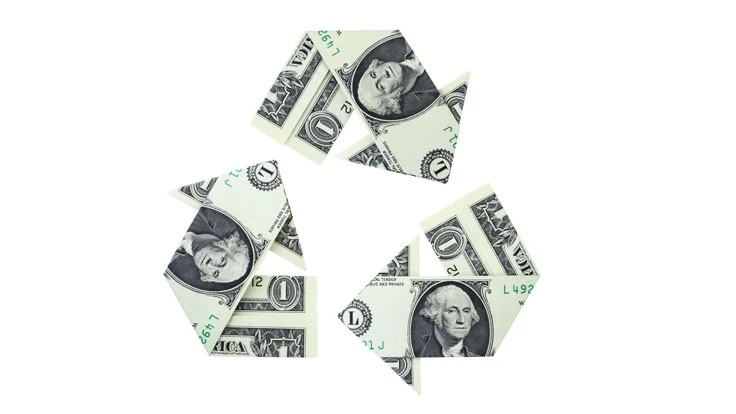
Great Lakes Tissue, a manufacturer of 100-percent-recycled tissue and paper products in Cheboygan, Michigan, has partnered with the Carton Council of North America and the Michigan Department of Environment, Great Lakes and Energy (EGLE) to help boost sustainability by improving manufacturing and recycling infrastructure in the state.
The mill says for 30 years it has been utilizing 100-percent-recycled material, including cartons and other postconsumer products, to make tissue products, and now seeks to recycle more food and beverage cartons and to find what it calls “a better use for the small percentage of polyethylene (PE) and poly/aluminum in cartons. Great Lakes Tissue has now partnered with the Carton Council and EGLE, as well as the Michigan Department of Agriculture and Rural Development (MDARD), to fund the effort.
The funding has provided the mill with new equipment to better handle the poly and poly/aluminum residual from the pulping process and, along with allowing the mill to process more cartons, the equipment also removes more moisture from PE and poly/aluminum, which it says significantly decreases its weight and allowing for more efficient transport with lower greenhouse gas (GHG) emissions.
The company says it also can recapture the water and recycle it back into the process for reuse.
“The new equipment has allowed us to reduce the water content in our material from 65 percent to 17 percent, far exceeding our goal of 25 percent,” says Julie LaFond, plant engineer and general project manager at Great Lakes Tissue. “This lower moisture allows for reduction in greenhouse gas emissions as we can haul the same volume of materials in fewer loads.”
MDARD Director Gary McDowell says his department is “proud to invest in technology helping reduce food and beverage cartons from ending up landfills while supporting a Michigan-based business.”
Currently, Great Lakes Tissue says the small amount of poly/aluminum residue is sent to St. Mary’s Cement in Charlevoix, Michigan, where it offsets the use of coal as fuel versus being sent to landfill, and the company adds that it continues to explore alternative uses for the material with a goal of eventually using it to make new products.
“Our goal is to keep cartons out of landfills and ensure they are able to go on to have a second life,” says Jason Pelz, vice president of recycling projects at the Carton Council and vice president of sustainability, U.S., Canada, Central America and Caribbean for Tetra Pak. “We are delighted to help fund these efforts and believe it is a model that could be replicated in other locations.”
Latest from Waste Today
- IV Waste awarded one-year emergency contract in French Quarter
- WM of Pennsylvania awarded RNG vehicle funding
- US Composting Council executive director announces retirement
- Fuzion acquires Elite Roll-Off Services
- Los Angeles County files lawsuit against Chiquita Canyon Landfill operators
- Lux Research questions hydrogen’s transportation role
- Interstate Waste marks 25 years with record growth, strategic acquisitions
- Hauler Hero announces $10M in seed funding





